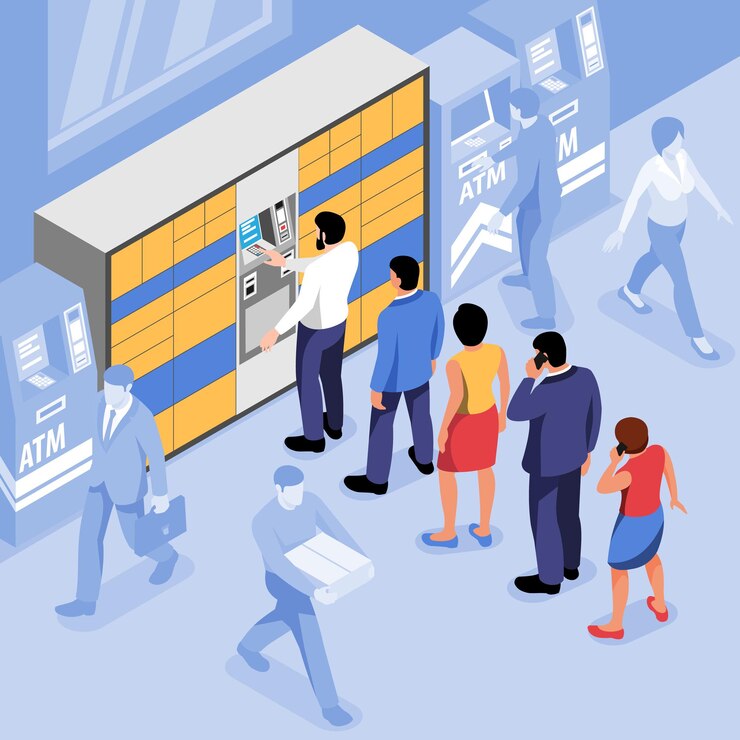
Queue management systems have become a cornerstone of efficient service delivery, transforming the way businesses and organizations handle customer flow. Whether you’re in a hospital, bank, or retail store, a well-implemented queue management system (QMS) can dramatically improve operations, reduce waiting times, and enhance customer satisfaction. This blog explores the significance of QMS, its growing adoption in Riyadh, and its role in revolutionizing service delivery across Saudi Arabia.
What is a Queue Management System?
A queue management system is a technological solution designed to organize and streamline customer flow in environments where people wait for services. It eliminates the chaos of unmanaged queues, ensuring that customers are served in an orderly and fair manner.
Features of Queue Management Systems
- Digital Ticketing: Customers are issued a ticket with a unique number, ensuring a systematic service order.
- Real-Time Monitoring: Tracks the flow of customers and provides data on waiting times and service efficiency.
- Analytics and Reporting: Offers insights into peak hours, customer behavior, and staff performance.
- Customizable Solutions: Tailored to meet the specific needs of different industries.
- Integration Capabilities: Can integrate with existing software like CRMs or appointment booking systems.
Benefits of Queue Management Systems
- Reduced Waiting Times: Keeps queues moving efficiently, minimizing delays.
- Enhanced Customer Experience: Creates a smooth and satisfying journey for customers.
- Operational Efficiency: Enables staff to focus on providing quality service rather than managing crowds.
- Data-Driven Decisions: Analytics empower organizations to make informed operational improvements.
Queue Management System in Riyadh
Riyadh, as the capital of Saudi Arabia, is at the forefront of technological advancements, including the adoption of queue management systems. From healthcare facilities to retail outlets, QMS is transforming service delivery across the city.
Industries Leveraging Queue Management Systems in Riyadh
-
Healthcare
Hospitals and clinics in Riyadh use QMS to manage patient appointments, registrations, and pharmacy queues. This ensures that patients receive timely and organized care. -
Government Services
Government offices in Riyadh, including passport and ID centers, have implemented QMS to handle high footfall efficiently, improving public satisfaction. -
Retail and Hospitality
Shopping malls, restaurants, and entertainment venues use QMS to enhance customer experiences and manage large crowds during peak times. -
Banking and Financial Institutions
Banks rely on queue management systems to handle customer transactions seamlessly, reducing waiting times and ensuring a streamlined process.
Queue Management System in Saudi Arabia
Across Saudi Arabia, the adoption of queue management systems is rapidly growing. Businesses and organizations are recognizing the immense value these systems bring in terms of efficiency, customer satisfaction, and operational excellence.
The Role of Queue Management Systems in Saudi Arabia
-
National Vision 2030 Alignment
The Kingdom’s Vision 2030 emphasizes digitization and improved service delivery. QMS aligns perfectly with this vision by introducing innovative solutions for customer management. -
Improving Public Sector Services
Government agencies across the Kingdom are deploying QMS to serve citizens better and meet their expectations. -
Supporting Economic Growth
By improving customer experience and operational efficiency, QMS contributes to the economic progress of Saudi Arabia.
Challenges and Opportunities
-
Challenges
- Initial cost of deployment.
- Resistance to change in traditional setups.
-
Opportunities
- Expanding QMS to rural areas.
- Leveraging AI for predictive queue management.
Best Practices for Implementing Queue Management Systems
- Assess Business Needs: Understand your organization’s specific requirements before choosing a QMS.
- Employee Training: Train staff to use the system effectively to maximize its benefits.
- Customer Education: Educate customers on how to use the QMS for a smoother experience.
- Regular Updates: Keep the system updated with the latest features and technologies.
- Monitor and Optimize: Use analytics to continuously improve the queue management process.
The Future of Queue Management Systems
The future of queue management systems in Saudi Arabia is promising, with advancements in artificial intelligence, IoT, and mobile technologies expected to enhance their capabilities. As businesses and organizations continue to prioritize customer satisfaction, the adoption of QMS will only accelerate.
FAQs
1. What is a queue management system?
A queue management system is a technology solution that organizes and manages customer queues to improve efficiency and reduce waiting times.
2. Why is QMS important in Riyadh?
Riyadh’s growing population and emphasis on modern service delivery make QMS crucial for handling large customer volumes efficiently.
3. Which industries benefit the most from QMS in Saudi Arabia?
Industries such as healthcare, banking, retail, and government services benefit significantly from queue management systems.
4. How does a QMS enhance customer satisfaction?
By reducing waiting times, providing real-time updates, and ensuring a systematic service process, QMS greatly enhances customer satisfaction.
5. What is the cost of implementing a QMS in Saudi Arabia?
The cost varies depending on the system’s features and complexity but is generally considered a valuable investment for improving operations.



Leave a Reply